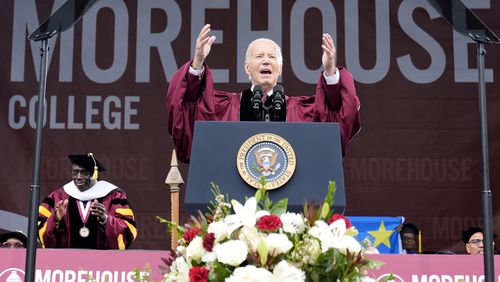Senate Majority Leader Mitch McConnell reportedly said Wednesday there is “no realistic path” to pass President Donald Trump’s proposed $2,000 stimulus checks through the GOP-controlled Senate.
McConnell shut the door Wednesday on Trump’s push for bigger relief checks, declaring Congress has provided enough pandemic aid as he blocked another attempt by Democrats to force a vote.
The GOP leader made clear he is unwilling to budge, despite political pressure from Trump and even some fellow Republican senators who demanded a vote. Trump wants the recently approved $600 in aid increased threefold. But McConnell dismissed the idea of bigger “survival checks,” saying the money would go to plenty of American households that don’t need it.
McConnell’s refusal to act means the additional relief Trump wanted is all but dead.
“We just approved almost a trillion dollars in aid a few days ago,” McConnell said, referring to the year-end package Trump signed into law.
McConnell added, “if specific, struggling households still need more help,” the Senate will consider “smart targeted aid. Not another firehose of borrowed money.”
McConnell’s remark about “no realistic path” was reported by The Washington Post.
Pressure has continued to mount on the Senate to follow the Democratic-controlled House, which voted overwhelmingly Monday to meet the president’s demand to increase the checks from $600 as the nation’s coronavirus crisis worsens.
On Tuesday, both of Georgia’s GOP senators — David Perdue and Kelly Loeffler — said they support Trump’s plan for bigger checks.
“I’m delighted to support the president,” said Perdue on Fox News, while Loeffler said in an interview on Fox she also backs the boosted relief checks. Perdue and Loeffler are locked in bitter reelection fights against Democrats that will determine control of the Senate next month.
Trump has repeatedly criticized the GOP’s Senate leadership for its refusal to act on his demands. Earlier this week, McConnell said “the Senate will begin a process” to bring the president’s demand for the $2,000 checks and other remaining issues “into focus.”
The House tally was a stunning turn of events. Just days ago, during a brief Christmas Eve session, Republicans blocked Trump’s sudden demand for bigger checks as he refused to sign the broader COVID-19 aid and year-end funding bill into law.
In the Senate, Republicans are divided between those who align with Trump’s populist instincts and those who adhere to what had been more traditional conservative views against government spending. Congress had settled on smaller $600 payments in a compromise over the big year-end relief bill Trump signed into law.
House Speaker Nancy Pelosi said, “Republicans have a choice: Vote for this legislation or vote to deny the American people the bigger paychecks they need.”
The legislative action during the rare holiday week session may do little to change the $2 trillion-plus COVID-19 relief and federal spending package Trump signed into law Sunday, one of the biggest bills of its kind providing relief for millions of Americans.
That package — $900 billion in COVID-19 aid and $1.4 trillion to fund government agencies — will deliver long-sought cash to businesses and individuals and avert a federal government shutdown that otherwise would have started Tuesday, in the midst of the public health crisis.
Together with votes Monday and Tuesday to override Trump’s veto of a sweeping defense bill, it’s potentially one last confrontation between the president and the Republican Party he leads as he imposes fresh demands and disputes the results of the presidential election. The new Congress is set to be sworn in Sunday.
Aside from the direct $600 checks to most Americans, the COVID-19 portion of the bill revives a weekly pandemic jobless benefit boost — this time $300, through March 14 — as well as a popular Paycheck Protection Program of grants to businesses to keep workers on payrolls. It extends eviction protections, adding a new rental assistance fund.
The COVID-19 package draws and expands on an earlier effort from Washington. It offers billions of dollars for vaccine purchases and distribution, for virus contact tracing, public health departments, schools, universities, farmers, food pantry programs and other institutions and groups facing hardship in the pandemic.
Americans earning up to $75,000 will qualify for the direct $600 payments, which are phased out at higher income levels, and there’s an additional $600 payment per dependent child.
Meantime, the government funding portion of the bill keeps federal agencies nationwide running without dramatic changes until Sept. 30.
President-elect Joe Biden told reporters at an event in Wilmington, Delaware, he supported the $2,000 checks.
The Associated Press contributed to this report.







